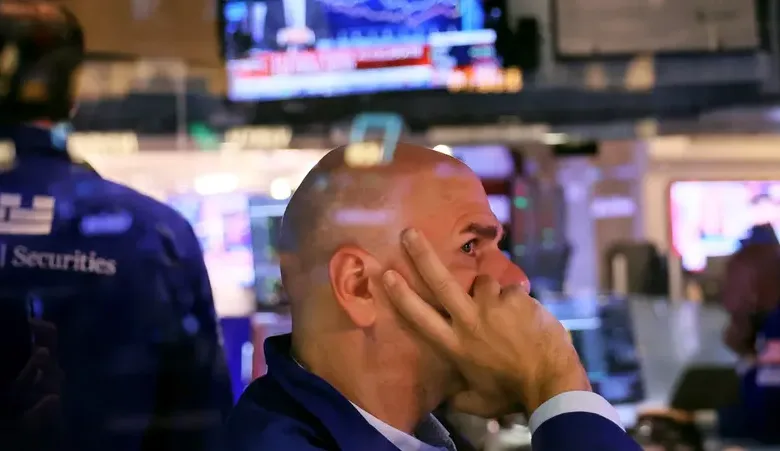
U.S. stocks closed lower on Monday, affected by ongoing concerns over tariffs and the possibility of a federal government shutdown, further fueling fears that the U.S. economy might enter a recession.
President Donald Trump declined to comment on Sunday regarding the sharp market downturn caused by his shifting trade policies, raising questions about the impact of his unpredictable approach on the slowing U.S. economy.
Meanwhile, HSBC downgraded U.S. stocks, citing uncertainties related to tariffs.
In this context, Thomas Hayes, chairman of Great Hill Capital in New York, stated: “If you want to understand what is happening in the U.S. market, don’t just focus on tariffs—pay attention to Japanese government bond yields as well. The decline in carry trade has led to the withdrawal of hot money from major tech stocks like Microsoft, Apple, Nvidia, Alphabet, Meta Platforms, Amazon, and Tesla, causing a drop in the tech sector.”
Carry trade in this case involves borrowing yen at low costs to invest in other currencies and assets that offer higher returns, such as the U.S. dollar and U.S. Treasury bonds.
Government Shutdown
Adding to the instability, lawmakers in Congress are working hard to pass a spending bill to avoid a government shutdown.
China’s retaliatory tariffs on selected U.S. imports are set to take effect on Monday, while U.S. tariffs on certain essential metals are expected to be enforced later this week.
According to preliminary data, the S&P 500 index lost 155.21 points, or 2.69%, closing at 5614.99 points. The Nasdaq Composite index fell 726.01 points, or 3.99%, to close at 17,470.21 points, marking its worst day since 2022. The Dow Jones Industrial Average dropped 890.63 points, or 2.08%, to close at 41,911.09 points.
The “Magnificent Seven” group—once the stars of this bull market—led Monday’s declines as investors shifted toward safer stocks. Tesla dropped 13%, heading for its worst day since 2020, while Alphabet, Meta, and AI-favorite Nvidia fell around 5%. Palantir, another stock popular among retail traders, plunged more than 10%.
Weak Data
Concerns over the economy intensified last month, initially triggered by weak data seemingly reacting to the back-and-forth tariff policies and further fueled by recent statements from the White House.
Treasury Secretary Scott Bessent told CNBC on Friday that the economy might undergo a “detox period” as the new administration reduces government spending. In a Sunday interview, Trump responded to a Fox News question about a possible recession, stating that the economy is going through a “transition period.”
Trump said, “What I need to do is build a strong country. You can’t really monitor the stock market.”
Lower Economic Growth Forecasts
Goldman Sachs has recently downgraded its economic growth forecasts due to the potential impact of tariffs.
Sam Stovall, chief investment strategist at CFRA Research, stated: “We are in the midst of an artificial correction. I call it artificial because it is based on reactions to the administration’s tariff programs—or at least tariff threats—and what kind of impact that could have on the economy.”
Signs of investor risk aversion were evident throughout Wall Street. The Chicago Board Options Exchange’s Volatility Index, a key measure of traders’ fears, surged to its highest level since December. Bitcoin dropped below $80,000, and U.S. Treasury yields declined.
Losses in the S&P 500 could have been worse if not for a rotation into some of the more defensive market sectors that generate stable revenues and pay dividends.




